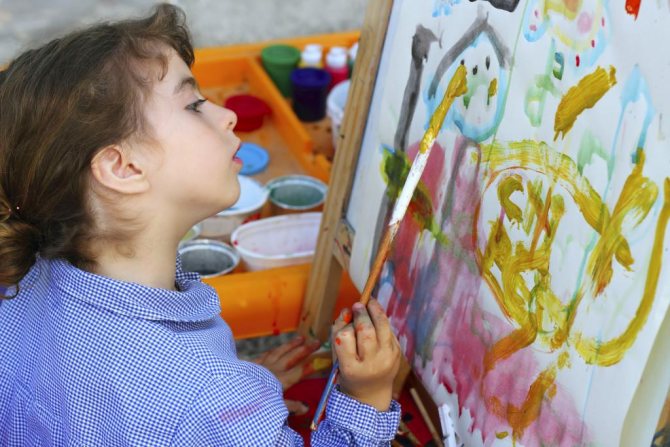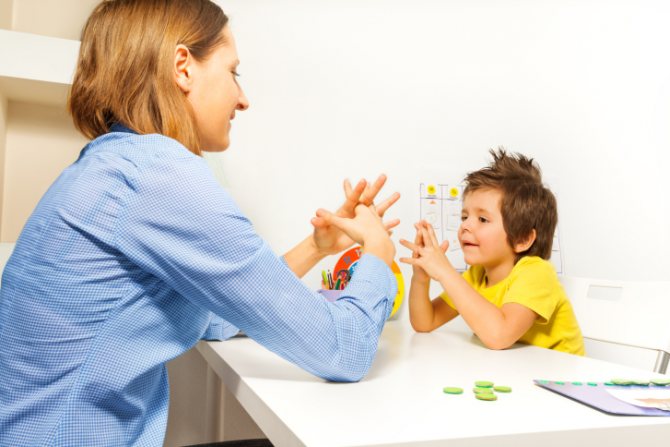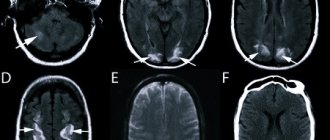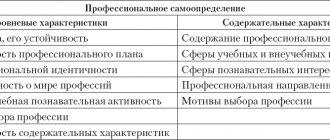Causes
What influences the formation of a person’s will and emotions? There are two main reasons that can cause a violation. One of them is heredity, and the other is social circle. The causes of disturbances in the emotional-volitional sphere are discussed in more detail below.
- Impression. If a child does not receive enough impressions and sits at home most of his life, then his development is very slow. In order for the psyche to develop normally, parents should walk with the child in the yard, show him other children, study trees, and give him the opportunity to play with sand. Impressions form a normal nervous system and help the child learn to experience and then control his emotions.
- Another reason for the disturbance of the emotional volitional sphere is the lack of movement. A child whose parents do not bother themselves much with their child’s development may begin to walk late. Such inhibition of normal physical development leads to inhibited emotional reactions. And some parents tend to realize over time that their child is not walking, but the neighbor’s children are already running. Parents begin to catch up, and the child suffers not only physically, but also psychologically.
- A child may suffer greatly due to the lack of maternal love. If a woman does not take her child in her arms, stroke the baby, rock him and sing lullabies to him, the baby will quickly lose contact with his mother. Such a child will grow up inferior, as people say - unloved.
Emotionally volitional disorders in children
Often, parents' concern is mainly concentrated in the area of children's physical health, when sufficient attention is not paid to the emotional state of the child, and some early alarming symptoms of disturbances in the emotional-volitional sphere are perceived as temporary, characteristic of age, and therefore not dangerous.
Emotions play a significant role from the very beginning of a baby’s life, and serve as an indicator of his attitude towards his parents and what surrounds him.
Currently, along with general health problems in children, experts note with concern the increase in emotional-volitional disorders, which result in more serious problems in the form of low social adaptation, a tendency to antisocial behavior, and learning difficulties.
External manifestations of disorders of the emotional-volitional sphere in childhood
Despite the fact that you should not independently make not only medical diagnoses, but also diagnoses in the field of psychological health, and it is better to entrust this to professionals, there are a number of signs of disturbances in the emotional-volitional sphere, the presence of which should be the reason for contacting specialists.
Violations in the emotional-volitional sphere of a child’s personality have characteristic features of age-related manifestations.
So, for example, if adults systematically note in their child at an early age such behavioral characteristics as excessive aggressiveness or passivity, tearfulness, “getting stuck” on a certain emotion, then it is possible that this is an early manifestation of emotional disorders.
In preschool age, the above symptoms may be supplemented by the inability to follow norms and rules of behavior and insufficient development of independence. At school age, these deviations, along with those listed, can be combined with self-doubt, impaired social interaction, decreased sense of purpose, and inadequate self-esteem.
It is important to understand that the existence of disorders should be judged not by the presence of a single symptom, which may be the child’s reaction to a specific situation, but by the combination of several characteristic symptoms.
The main external manifestations are as follows:
Emotional tension. With increased emotional tension, in addition to well-known manifestations, difficulties in organizing mental activity and a decrease in play activity characteristic of a particular age can also be clearly expressed.
- The rapid mental fatigue of a child in comparison with peers or with earlier behavior is expressed in the fact that the child has difficulty concentrating, he may demonstrate a clear negative attitude towards situations where the manifestation of thinking and intellectual qualities is necessary.
- Increased anxiety. Increased anxiety, in addition to the known signs, can be expressed in avoidance of social contacts and a decrease in the desire to communicate.
- Aggressiveness. Manifestations can be in the form of demonstrative disobedience to adults, physical aggression and verbal aggression. Also, his aggression can be directed at himself, he can hurt himself. The child becomes disobedient and with great difficulty succumbs to the educational influences of adults.
- Lack of empathy. Empathy is the ability to feel and understand the emotions of another person, to empathize. In case of disturbances in the emotional-volitional sphere, this symptom is usually accompanied by increased anxiety. An inability to empathize may also be a warning sign of a mental disorder or intellectual disability.
- Unpreparedness and unwillingness to overcome difficulties. The child is lethargic and does not enjoy contact with adults. Extreme manifestations of behavior may look like complete ignorance of parents or other adults - in certain situations, a child may pretend that he does not hear an adult.
- Low motivation to succeed. A characteristic sign of low motivation for success is the desire to avoid hypothetical failures, so the child takes on new tasks with displeasure and tries to avoid situations where there is even the slightest doubt about the result. It is very difficult to persuade him to try to do anything. A common answer in this situation is: “it won’t work,” “I don’t know how.” Parents may mistakenly interpret this as a manifestation of laziness.
- Expressed distrust of others. It can manifest itself as hostility, often accompanied by tearfulness; school-age children can manifest it as excessive criticism of the statements and actions of both peers and surrounding adults.
- Excessive impulsiveness of a child, as a rule, is expressed in poor self-control and insufficient awareness of his actions.
- Avoiding close contacts with other people. A child may repel others with remarks expressing contempt or impatience, insolence, etc.
Formation of the emotional-volitional sphere of the child
Parents observe the manifestation of emotions from the very beginning of the child’s life; with their help, communication with parents occurs, so the baby shows that he feels good, or he experiences unpleasant sensations.
Later, as the child grows up, problems arise that he has to solve with varying degrees of independence. Attitude to a problem or situation causes a certain emotional response, and attempts to influence the problem cause additional emotions.
In other words, if a child has to show arbitrariness in carrying out any actions, where the fundamental motive is not “I want”, but “I need”, that is, volitional effort will be required to solve the problem, in fact this will mean the implementation of a volitional act.
As we grow older, emotions also undergo certain changes and develop. Children at this age learn to feel and are able to demonstrate more complex manifestations of emotions. The main feature of the correct emotional-volitional development of a child is the increasing ability to control the manifestation of emotions.
The main causes of violations of the emotional-volitional sphere of the child
Child psychologists place special emphasis on the statement that the development of a child’s personality can occur harmoniously only with sufficient trusting communication with close adults.
The main causes of violations are:
- suffered stress;
- retardation in intellectual development;
- lack of emotional contacts with close adults;
- social and everyday reasons;
- films and computer games not intended for his age;
- a number of other reasons that cause internal discomfort and feelings of inferiority in the child.
Violations of the children's emotional sphere manifest themselves much more often and more clearly during periods of so-called age-related crises. Vivid examples of such points of maturation can be the crises “I myself” at the age of three and the “Crisis of adolescence” in adolescence.
To correct disorders, timely and correct diagnosis is important, taking into account the causes of the development of deviations. Psychologists have a range of special techniques and tests to assess the development and psychological state of a child, taking into account his age characteristics.
For preschoolers, projective diagnostic methods are usually used:
- drawing test;
- Luscher color test;
- Beck Anxiety Scale;
- questionnaire “Well-being, activity, mood” (SAM);
- Phillips School Anxiety Test and many others.
Correction of disorders of the emotional-volitional sphere in childhood
What to do if the baby’s behavior suggests the presence of such a disorder? First of all, it is important to understand that these violations can and should be corrected. You should not rely only on specialists; the role of parents in correcting the behavioral characteristics of the child’s character is very important.
An important point in laying the foundation for a successful resolution of this problem is the establishment of contact and trust between parents and the child. In communication, you should avoid being critical, show a friendly attitude, remain calm, praise adequate manifestations of feelings more, you should be sincerely interested in his feelings and empathize.
Contact a psychologist
To eliminate disturbances in the emotional sphere, you should contact a child psychologist, who, with the help of special classes, will help you learn how to react correctly when stressful situations arise and control your feelings. Another important point is the work of the psychologist with the parents themselves.
Psychology currently describes many methods for correcting childhood disorders in the form of play therapy. As you know, the best learning occurs with the involvement of positive emotions. Teaching correct behavior is no exception.
The value of a number of methods lies in the fact that they can be successfully used not only by specialists themselves, but also by parents interested in the organic development of their baby.
Practical correction methods
These are, in particular, the methods of fairy tale therapy and puppet therapy. Their main principle is the child’s identification with a fairy tale character or his favorite toy during the game. The child projects his problem onto the main character, the toy and, during the game, resolves them according to the plot.
Of course, all these methods imply the obligatory direct involvement of adults in the game process itself.
If parents in the process of upbringing pay sufficient and due attention to such aspects of the development of the child’s personality as the emotional-volitional sphere, then in the future this will make it much easier to survive the period of teenage personality formation, which, as many know, can introduce a number of serious deviations in the child’s behavior.
The work experience accumulated by psychologists shows that not only taking into account the characteristics of age-related development, a thorough selection of diagnostic methods and psychological correction techniques allows specialists to successfully solve problems of violation of the harmonious development of a child’s personality, the decisive factor in this area will always be parental attention, patience, care and love .
Psychologist, psychotherapist, personal well-being specialist
Svetlana Buk
Source: https://MaryPop.ru/psihologiya/psixicheskoe-razvitie/jemocionalno-volevye-narushenija-detej.html
Volitional act
Violation of the emotional-volitional sphere occurs at an early age. To understand where the failure occurred, you need to find out how the will functions in a normal person. The sequence of decision-making for all people is as follows:
- Emergence of an impulse. A person has an urge to do something.
- Motivation. The person considers what he will receive when the action is completed. Most often, a person receives emotional satisfaction from his action.
- Instrument of activity. It’s not always possible to do an imagined action without additional equipment. Before starting work, you have to find all the necessary equipment.
- Decision-making. The person once again thinks about whether he should carry out his plan or not.
- Performing an action. The person carries out his idea.

This process occurs in the head of every person before he takes any action. You should not think that children, due to their undeveloped intelligence, do not carry out such work in their heads. Even our primitive ancestors - monkeys, make volitional efforts in order to perform this or that act.
How is emotional-volitional disorder diagnosed? The spheres of application of human will are varied. A person must move to take something or to eat. If a child is apathetic and doesn’t want anything, it means he has some kind of deviation. The same goes for overly active children who take actions without having time to think about the consequences of their decisions.
Symptoms and treatment of emotional personality disorder
Often, what others consider to be a bad character and lack of upbringing turns out to be a mental disorder .
Namely, emotional personality disorder. Such people are characterized by instability, impulsiveness, and a tendency toward antisocial behavior.
They cannot understand and cope with their problem on their own, so they need the help of a psychotherapist .
How to treat emotionally labile personality disorder? Find out about this from our article.
What it is?
Emotional personality disorder includes a whole complex of symptoms , expressed in increased irritability, excitability, mood swings, inability to control one’s behavior, and a tendency to deviant behavior.
Such people often commit crimes and suddenly lose their self-control. In this state, they pose a danger to themselves and society.
Causes and provoking factors
The main reason is organic brain damage. Provoking factors are:
- Heredity. More than 50% of patients have a family history of mental illness.
- Neuroinfections (poliomyelitis, meningitis, encephalitis).
- Head injuries.
- Epilepsy.
- Endocrine pathologies.
- Cardiovascular diseases.
- Alcoholism, drug addiction.
- Mental illnesses.
- Psychotraumatic situation.
- Prolonged stress.
- Abuse by parents.
- Lack of attention to the child in early childhood.
- Experienced violence.
Characteristic
Emotional disorder is divided into 2 types:
- emotionally unstable personality disorder of the impulsive type;
- emotionally unstable borderline personality disorder.
The impulsive type is characterized by manifestations already at an early age. Such children are uncontrollable , capricious, do not respond to educational measures, and often throw tantrums.
When communicating with other children, they try to establish leadership through force and do not recognize the accepted rules of the game. Therefore, they constantly have conflict situations.
Despite a normal intellectual level , a child with emotional impulsive disorder does not study well, as he is often subject to mood swings and cannot sit still and concentrate on his studies. In addition, he constantly conflicts with teachers.
If the pathology is not treated, the disease progresses.
In adults, impulsive disorder manifests itself as follows:
- mood swings;
- unreasonable attacks of aggression;
- performing actions in a state of passion, when a person does not control his behavior;
- excessive excitability;
- despotic behavior in the family, assertion of one’s authority through violence.
In patients with borderline type of disorder, symptoms are not so pronounced. They are not dangerous to others.
In childhood, a child is characterized by restlessness, tearfulness, and capriciousness. He finds it difficult to make friends and does poorly at school. These children end up in bad company and start using drugs and alcohol.
In adulthood, traits such as:
- suggestibility;
- impressionability;
- tendency to fantasize;
- fixation on one topic;
- accepting any minor failure as a tragedy;
- excessive emotionality;
- inconstancy of life goals;
- risk of depression and suicidal thoughts.
What are emotional disorders?
In psychiatry, emotional disorders are understood as an unstable emotional state in which life events are perceived inadequately .
That is, the patient is not able to independently regulate the intensity and manifestation of his emotions.
https://www.youtube.com/watch?v=1qYOehkjTzk
The following types of emotional disorders are distinguished: actual disorders of the emotional sphere and violation of the adequacy of emotions .
The first include:
- A state of affect is a violent emotion during which a person is not aware of his behavior and the environment.
- Hyperthymia is a mood of joy, expressed in increased facial expressions and increased excitement.
- Euphoria is a state of increased excitement, inadequate to the surrounding environment.
Often occurs under the influence of alcohol, drugs, and somatic diseases. Also typical for patients with mental disorders. - Hypotomia is the opposite of hyperthymia. A person has a negative attitude, sees only the negative sides, and is in a state of hopelessness.
- Depressive mood is a depressed state accompanied by melancholy, emptiness, and hopelessness.
- Panic is a feeling of anxiety, anticipation of trouble, catastrophe. The patient does not find a place for himself, he develops vegetative symptoms.
- Apathy is a state of indifference, alienation, lack of interest and desires.
- Anger is an extreme degree of negative arousal that turns into aggression.
- Paralysis of emotions is a complete absence of emotional reactions. Often occurs after severe stress or shock.
- Ambivalence is the occurrence of two opposing feelings in relation to the same situation, for example, euphoria and apathy.
- A phobia is an obsessive state of fear that a person cannot get rid of. For example, aerophobia, claustrophobia.
- Mania is an irresistible desire to perform some action.
- An emotional breakdown is an outburst of negative emotions. It manifests itself as malice, aggression, and vindictiveness.
Violation of the adequacy of emotions is manifested by the following conditions:
- Dysphoria is melancholy mixed with anger, severe irritability that arises in response to a minor stimulus.
- Hypermimicry is enhanced facial expressions, reactions change quickly.
- Amimia is the complete absence of facial expressions.
- Paramimia - facial expressions are inadequate to the situation.
For example, a person cries when he should laugh. Sometimes the patient makes faces without any reason.
Symptoms
Despite the fact that various emotional disorders have characteristic manifestations, they still have common symptoms:
- A person lacks self-control, he has no control over his emotions.
- The patient acts impulsively, under the influence of the momentary mood.
- He cannot plan and evaluate his actions.
- In response to a minimal stimulus, the patient experiences an inadequate reaction in the form of anger, aggression, hysteria, euphoria, etc.
- A person often experiences depressive and suicidal moods.
- He constantly complains about everyone and everything and takes any objections negatively.
- It is difficult for the patient to find a common language with others, he often starts conflicts, including with the use of violence.
Diagnostics
The diagnosis can be made by a psychiatrist based on complaints from the patient himself or his relatives.
But in order to diagnose an emotional disorder, it is necessary that the patient’s behavior meets at least three criteria :
- Inconsistency of cognitive functions with accepted norms.
- Emotions are far from adequate.
- Inability to control urges and needs.
- This behavior extends to all areas of life.
- A person experiences difficulties in social adaptation.
- These disorders continue for quite a long time, usually from childhood. Or they arose as a result of some traumatic event or illness.
- Presence of organic brain damage.
Treatment
Therapy begins with determining the cause .
If a focus of organic damage is detected in the brain, then medical assistance is necessary.
But the main direction is psychotherapy. Psychotherapist's tasks:
- Conduct testing to study the root cause of the problem and find a solution.
- Convince the patient that his pathology is curable.
- Choose the position of a comrade-in-arms, not a mentor.
Individual and group sessions are used to help patients. Gestalt therapy is effective . During the classes, the patient learns to recognize his problem and look for ways out of the situation.
It is advisable to involve the patient’s relatives in group classes. In individual sessions, the doctor teaches the patient to manage his emotions and feelings, and to respond adequately to stimuli.
Be sure to normalize the patient's daily routine . He should have full sleep, it is necessary to avoid taking tonic drinks (coffee, tea), especially in the evening. You should also give up computer games and watching aggressive films.
If the disorder is mild, then
they try to do without serious medications .
The patient is prescribed antihistamines (Tavegil, Suprastin), which have a sedative effect. It is also useful to take a course of plant-based sedatives (Novopassit, Perven, valerian, motherwort). Chamomile tea with the addition of mint and lemon balm helps a lot.
In case of obvious deviations, it is necessary to use serious medications. The choice depends on the nature of the disorder diagnosed in the patient. The following groups of drugs can be used :
- antidepressants (Melipramine, Fluvoxamine). Indicated for depression, depressive and suicidal moods;
- tranquilizers (Phenazepam, Atarax). Eliminates excessive tension, anxiety, helps with panic attacks, reduces aggression;
- neuroleptics (Haloperidol, Levomepromazine). Prescribed for increased excitability, aggression, anger, phobias.
When prescribing medications, it is important to follow the following rules :
- Prescribe a drug that has a minimum of side effects.
- Start with the minimum dose, increase only if there is no effect for a long time.
- Constantly monitor the patient's condition.
- If the prescribed drug is ineffective, stop taking it and choose alternative methods.
- Do not take medications for longer than 15 days.
- Stop taking it gradually so as not to provoke withdrawal syndrome.
It is not uncommon for a patient with an emotional disorder to require hospitalization . The basis for this are the following conditions:
- Statement from the patient’s relatives about the need to place him in the clinic.
- Statement from the patient himself agreeing to undergo treatment in a hospital.
- Behavior of the patient that poses a danger to others and himself.
Forecasts
If an emotional disorder is a consequence of serious brain damage, then it is completely impossible to cure the patient.
With the help of well-organized therapy, it is possible to achieve a state of remission and make the manifestations less pronounced.
However, this cannot be achieved with medications alone. Psychotherapeutic methods are of great importance , without which the patient will not be able to adapt to society.
Prevention measures include the following::
- Creating a favorable psychological environment in the family.
- Avoiding head injuries and neuroinfections.
- Avoidance of traumatic situations.
- Timely seeking help from a psychologist if psychological problems arise.
Emotional disorders do not arise out of nowhere. Usually they are the result of some difficult situations or serious illnesses.
It is important to help a loved one survive grief and cope with the problem, then the risk of mental disorders will be reduced.
Personality disorder - features of psychotherapy:
Our interesting group:
Source: https://psyholic.ru/psihiatriya/emotsionalnoe-rasstrojstvo-lichnosti.html
Main problems
Depending on the degree of disturbance of the emotional-volitional sphere, the child becomes irritable, lethargic or generative. Parents should notice their child's problems as soon as they appear. Any disease, before settling in the body, manifests itself in symptoms. At this stage, it is necessary to determine the extent of the child’s problems and prescribe treatment. What is the classification of persons with disorders of the emotional-volitional sphere?
- Aggressiveness. Persons behave inappropriately, bully others and take pleasure in tears and humiliation of a weaker opponent. Even children who behave aggressively will never bully someone who is stronger than them. They will logically reason that a harmless creature will not be able to fight back, and therefore can be humiliated.
- Slow reaction. Children cannot immediately understand what the problem is. For example, they may feel hungry, but will not make any effort to ask for food or to get food themselves.
- Disinhibited reaction. The second point in the classification of persons with disorders of the emotional-volitional sphere are people who cannot control their emotions. If they cry, they cry too loudly; if they laugh, they do so for an unnaturally long time.
- Excessive anxiety. Downtrodden children of overactive parents become quiet. They are afraid to talk about their desires and problems. They fail to attract attention due to their weakness of character.

Classification of disorders in the emotional-volitional sphere
Disorders of the emotional sphere in adult patients are distinguished by such features as:
- Hypobulia or decreased willpower. Patients with this disorder lack any need to communicate with other people, experience irritability in the presence of strangers, and lack the ability or desire to carry on a conversation.
- Hyperbulia. It is characterized by increased desire in all areas of life, often expressed in increased appetite and the need for constant communication and attention.
- Abulia. It is distinguished by the fact that a person’s volitional drives sharply decrease.
- A compulsive desire is an irresistible need for something or someone. This disorder is often compared to animal instinct, when a person’s ability to be aware of their actions is significantly suppressed.
- Obsessive desire is a manifestation of obsessive desires that the patient is not able to independently control. Failure to satisfy such desires leads to depression and deep suffering for the patient, and his thoughts are filled with the idea of their realization.
Groups of violations
Classification of disorders of the emotional-volitional sphere is necessary in order to correctly prescribe therapeutic measures. All children are different, and their problems may not be the same. Even children who grow up in the same family can suffer from various ailments. The main groups of disorders of the emotional-volitional sphere:
- Mood disorder. Violation of the emotional-volitional sphere in children often manifests itself in uncontrollable emotions. The child cannot control himself, and therefore his feelings are always on edge. If a baby is happy about something, then soon his state reaches euphoria. If a child is sad, he can easily become depressed. And often one state after an hour turns into another, polar to the original one.
- Unusual behavior. When considering a violation of the emotional-volitional sphere in children, one cannot fail to mention deviations from the norm of behavior. Guys can be either too calm or overly active. The first case is dangerous due to the fact that the child is lacking initiative, and the second situation threatens because the child has problems with attention.
- Psychomotor problems. The child suffers from strange surges of feelings that overwhelm him for no reason. For example, a child may complain that he is too scared, although in reality the child is not in danger. Anxiety, impressionability and imaginary behavior are well known to children with a violation of the emotional-volitional sphere and behavior that differs from the generally accepted norm.

Emotional personality disorder, psycho-emotional disorder of the volitional sphere
Emotional personality disorder includes a whole complex of symptoms , expressed in increased irritability, excitability, mood swings, inability to control one’s behavior, and a tendency to deviant behavior.
Such people often commit crimes and suddenly lose their self-control. In this state, they pose a danger to themselves and society.
Manifestations of the disease
The first symptoms of the psychopathology in question usually make themselves felt in early childhood. Patients are characterized by reckless, impulsive behavior. By the age of twenty-five, the mental disorder is usually completely formed; at the same age, the risk of committing suicide is highest.
In adults, the disorder causes impulsiveness, the inability to build stable relationships with others, and low self-esteem. Common signs of the disease also include a fear of loneliness, a lack of individuality and an inability to defend one's own point of view.
Patients are literally deprived of the opportunity to live normally in society, which leads to the development of other mental disorders.
Persistent thought patterns or “early maladaptive schemas” that develop from childhood in individuals with borderline personality disorder were formulated by psychotherapist Young, who developed a cognitive-behavioral approach to the treatment of personality disorders. These patterns gradually develop and remain with a person throughout life in the absence of competent correction.
Young's early disruptive schemas characteristic of borderline personality disorder.
Manifestations Possible expressions
| Loss/rejection | “I won’t be able to find a partner and I’ll be alone forever.” |
| Addiction | “I am not able to solve problems on my own, I need someone who can help me.” |
| Subordination | “My desires should not contradict the desires of others, otherwise they will turn away from me or show aggression.” |
| Unattractiveness | “No one will love me if they know what I really am.” |
| Lack of adequate self-discipline | “I am not able to discipline myself and control my own behavior.” |
| Self-accusation | "I am a bad person and must be punished." |
| Mistrust | “People around me can’t be trusted, they want to use me for their own purposes.” |
| Fear of being emotional | “If an unexpected situation happens, I must control my own emotions” |
| Emotional deprivation | “My feelings and desires are of no interest to anyone, no one will want to take care of me or protect me.” |
Source: https://proctologi.com/insult/emotsionalnoe-rasstrojstvo-lichnosti-psihoemotsionalnoe-narushenie-volevoj-sfery.html
External manifestation
Disturbances in the development of the emotional-volitional sphere of a child can be determined by the child’s behavior.
- Strong dependence on parents. A child who, at five years old, cannot trust the people around him causes a strange reaction. The baby hides behind his mother’s skirt all the time and tries to close himself off from the world. Normal childhood embarrassment is one thing. And something completely different – distrust, unsociability and intractability.
- Lack of communication. A child who is neglected in the family will feel lonely. The child will not be able to form relationships normally, since the parents will convince the child that he is stupid, crooked and unworthy of love. The loneliness that such a child will exude will be strongly felt.
- Aggression. Children who lack attention or who want to relieve tension may not withdraw into themselves, but, on the contrary, behave too relaxed. Such children will not restrain their emotions and will try with all their might to attract attention to their person.
Methods
Emotional-volitional disturbances in the personality sphere can be subject to correction. What methods do specialists resort to to correct what parents have wrongly instilled in their child?
- Game therapy. With the help of the game, the rules of adequate behavior in the group are explained to the child. The child develops new neural connections that help transform what he sees in the game and transfer examples to life situations.
- Art therapy. With the help of a drawing you can learn a lot about a child’s personality. A creative work will show the specialist how the baby feels in the garden, in the family and in this world. Drawing helps you relax and feel confident. Other types of art work the same way: modeling, embroidery, design.
- Psychoanalysis. An experienced psychotherapist can help a child reconsider his views on familiar things. The doctor will tell the baby what is good and what is bad. The specialist will act in two ways: suggestion and persuasion.
- Trainings. This method of influence involves working with a group of children who have a common problem. The guys will jointly review their habits and form new ones based on old ones.

Lesson 8 (2/16)
Issues covered:
- Concepts: feelings and emotions.
- Types of emotions and feelings. Emotional states.
- Volitional processes.
In ordinary life, very often the term “feeling” is confused with the term “sensation”, and one is used instead of the other.
This is because many sensations are accompanied by a so-called “feeling tone” or experience. For example, the feeling of hunger is always accompanied to one degree or another by a feeling of suffering. Therefore, the state that we call hunger is sometimes called “a feeling of hunger” or “a feeling of hunger” in ordinary life. Strictly psychologically, one should say this: “I feel hunger, accompanied by an unpleasant feeling” (“feeling tone”). Or, for example, the sensation of taste is accompanied by a sensual tone, while the sweet taste can be pleasant, but with a large amount of sweetness there is often an unpleasant feeling of cloying or nausea. Some events cause joy in a person, others - indignation, he loves some people, is indifferent to others, and hates others; something makes him angry, something he is afraid of; He is proud of some of his actions, ashamed of others. Pleasure, joy, grief, fear, anger, love - all these are forms of a person’s experience of his relationship to various objects. Feelings in psychology are those mental processes that are characterized by the experience of pleasant or unpleasant, pleasure or pain. Feelings are a person’s experience of his relationship to what he knows or does, to other people and to himself, what he imagines or remembers. A person experiences joy from a pleasant meeting with a friend, from a job well done, etc. He experiences anxiety when he does not manage to do something on time and do it well.
Due to the huge number of extremely diverse feelings, their classification encounters great difficulties. Some psychologists divide all feelings into two large classes: pleasant and unpleasant. But there are feelings that can be both pleasant and unpleasant, for example, a feeling of anger.
Other psychologists divide feelings into lower (associated with physical experiences, with organic sensations) and higher (associated with more significant mental or spiritual states).
Feelings can sometimes be deeply hidden, so that one cannot guess from a person’s appearance about his experiences, and sometimes, on the contrary, they can be expressed externally (redness or paleness of the face, trembling of the voice or hands, frowning of the forehead, eyebrows, widening of the nostrils, intermittent breathing , rapid heartbeat, etc.). Such identified feelings, accompanied by external bodily manifestations, are called emotions.
Emotions (from Latin emoveo - excite, excite) are a form of manifestation of feelings, a person’s reaction to the influence of internal and external stimuli, which has a pronounced subjective coloring (determined by the relationship of their objective properties to the needs of the subject). These are processes that reflect the personal significance and assessment of external and internal situations for a person’s life in the form of experiences.
The main feature of emotions is a person’s experience of his relationship to events, objects and phenomena that are significant to him. Emotions arise when there is a lack of information necessary to achieve a goal; they contribute to the search for new information and thereby increase the likelihood of achieving the goal. Thus, emotions influence the process of cognition.
Emotions relate to the processes of internal regulation of behavior. Being a subjective form of expression of needs, they precede activities to satisfy them, motivating and directing them.
Emotions can express an assessment of individual conditions that promote or hinder the implementation of activities (for example, fear, anger), specific achievements in work (joy, sadness), and current or possible situations. In accordance with this, positive and negative emotions are distinguished.
To achieve the highest results in activity, both too weak and very strong emotional arousals are undesirable. For every person there is an optimum of emotional excitability, which ensures maximum efficiency in work. The optimal level of emotional arousal, in turn, depends on many factors: the characteristics of the activity being performed, the conditions in which it takes place, the individuality of the employee, etc.
Emotions can be caused by both real and imagined situations. They, like feelings, are perceived by a person as his own internal experiences, transmitted to other people, and empathized with. Emotions are the external manifestation of feelings.
The main functions of emotional processes can be identified:
- energy mobilization of the body (positive feelings increase a person’s vital activity, negative feelings decrease it);
- regulatory;
- signal
Characteristic features of emotional processes:
- direction (positive or negative);
- degree of tension;
- level of generality.
Emotional processes are very diverse. Let's look at the main types of emotions.
Depending on the direction, there are positive (pleasure, joy, delight), negative (sadness, anger, fear, despair, melancholy, anger, envy) and indefinite (polar, neutral) emotions.
According to their effects on humans, they are sthenic (from the Greek: excitement) and asthenic (depress, inhibit).
Thenic experiences are exciting processes that increase the activity of the personality (joy, anger, malice, rage, disgust, delight).
Asthenic emotions are experiences that reduce the activity of the individual (fear, anxiety, sadness, fright, melancholy, doubt, bewilderment). However, some asthenic affects can turn into sthenic ones; for example, melancholy can take on a sharply exciting character.
By duration, strength, intensity: emotional states (mood) and emotional reactions (affect, frustration, passion, stress).
According to the degree of generalization of the subject content, feelings are divided into concrete (to a partner, a work of art), generalized (to music, to a representative of the business world of a certain country) and abstract (a sense of justice, the tragic).
There are also intellectual, moral and aesthetic feelings:
- intellectual (cognitive) express and reflect the individual’s attitude to the process of cognition, its success and failure, and are associated with the satisfaction of cognitive needs. Intellectual ones include: curiosity, surprise, bewilderment, a sense of newness, doubt;
- moral (moral) - those that are based on a person’s moral assessment of his actions and the actions of other people in accordance with moral standards (sense of duty, honor, friendship). Moral ones include: patriotism, love of work and one’s business, a sense of pride in one’s profession; sensitivity, delicacy, attentiveness; call of Duty; hatred of crime and lawbreakers;
- aesthetic - those that reflect the subject’s attitude to various facts of life and their reflection in art as something beautiful or ugly, tragic or comic, sublime or vulgar, elegant or rough (feeling of beauty). Aesthetic ones include: a sense of the beautiful, the sublime, the heroic, the tragic, the ugly.
Let's take a closer look at feelings that vary in duration, strength and intensity of emotions.
Mood is a stable, long-term emotional state (joyful, depressed, optimistic), which gives a certain emotional tone and coloring to all other experiences, as well as a person’s thoughts and actions.
Mood more than others influences a person’s activity and its results. A cheerful mood stimulates the employee’s activity and has a positive effect on others. Being in a bad mood, a person looks at the world gloomily. Everything outrages and angers him: the cheerful laughter of people, the neighbor who carelessly pushed him, the weather, etc.
However, mood can and should be controlled. A person should not be a slave, but a master of his mood. A bad mood can be overcome through strong will. Sometimes you should switch to an activity that is pleasant, interesting, and uplifting. A bad mood can be overcome very well if a person actively switches to not very hard, but enjoyable physical work. As a result, a person usually has a cheerful, cheerful mood. This technique in mental hygiene is called “prescribe work for yourself.”
Less stable are affect, frustration, passion and stress. Affect (from Lat. emotional excitement, passion) is a strong, rapidly flowing emotional reaction (emotional explosion). Affects are caused by strong stimuli (words, behavior of other people, certain circumstances). Usually accompanied by motor overexcitation, but can, on the contrary, cause numbness, speech inhibition and complete indifference (despair, fear). For example, the death of a loved one can cause rage and a desire for revenge or fear, despair, numbness, etc. In a state of passion, a person is completely absorbed in only one feeling and is not able to experience other feelings all this time.
Affect is a strong, violent and relatively short-term emotional experience. Affects can reach such a degree that a person becomes mentally ill for a short time. This state in psychiatry is called an “exceptional state” of consciousness. A person in a state of passion can commit rash acts. When such a painful state passes, the person who survived it does not remember anything about what happened to him, what he said and did.
Such affects are called pathological affects, in contrast to ordinary physiological affects. For acts committed in a state of pathological affect, a person is not responsible (insane).
Affects are characterized by the following features: extremely high emotional stress, response to a threat, unpreparedness for action, complete mobilization of all the forces of the body, narrowing of consciousness, and subsequently complete physical exhaustion, partial loss of memory. Essentially, affect is a temporary non-pathological reaction of the body, disorientation of consciousness, its narrowing, caused by a sudden super-strong emotional impact, accompanied by intense impulsive actions and changes in the body (the release of hormones) of a person. For example, in a state of affect of malice or anger, a person does not experience a feeling of pain (even a mortally wounded person does not feel pain during the affect).
Frustration is a conflicting emotional state caused by difficulties that are insurmountable for a given individual, obstacles to achieving a goal, the collapse of plans, the collapse of hopes, or the experience of a major failure. This is an emotional reaction of the human body that arises as a result of a real or imaginary obstacle that prevents the satisfaction of the individual’s needs.
Passion is a manifestation of emotions. Passion is a strong, deep feeling, characterized by strong-willed direction and duration (captivates a person for a long time).
Passion is associated with any aspirations, interests, activities, and guides all thoughts and actions of a person. Passion can be positive or negative in direction. Positive is a passion for theater, music, sports, science.
Negative - aimed at small or unworthy goals, which ultimately weaken the will and suppress the human psyche - passion for gambling for money, drinking alcohol, drugs.
Stress is a conflicting emotional state, mental overstrain in an acute, dangerous situation, initially causing a depressed, depressed state, and then a state of maximum mobilization of efforts to get out of this situation. The founder of the theory of stress, the Canadian scientist G. Selye, called stress an adaptation syndrome, which occurs in a person as a defensive reaction to some danger and is expressed in adaptation (adaptation) to a new situation.
Factors that cause stress (stressors) can be failures, fears, breakdowns, which are either physical or mental danger. Mental danger can arise when making responsible decisions, conflicts and other difficult situations. Stress is a nonspecific reaction of the body to any impact. Stress can be mobilizing (austress) and demobilizing (distress).
Psychology also distinguishes between individual and social feelings. Feelings that are associated with the interests of personal individual life are called individual feelings. Feelings related to the life interests of other individuals are called social feelings.
Will is the conscious regulatory side of consciousness, expressed in a person’s ability to perform purposeful actions and deeds that require overcoming difficulties.
Functions of the will:
- choice of motives and goals;
- encouragement to action;
- organization of mental processes into a system;
- mobilization of mental and physical capabilities in achieving set goals in a situation of overcoming obstacles.
Volitional regulation of behavior is the conscious direction of mental and physical efforts to achieve a goal or refrain from activity.
Volitional effort is a form of moral stress and the creation of additional motives to act and achieve a goal.
Volitional action can be considered as consisting of several stages:
- preparatory stage: struggle of motives, awareness of the purpose of action, method of action, decision making. But not all decisions end in action. If the decision does not end in action, then such a mental action is called intention (intention is an unrealized decision);
- execution stage: action and overcoming difficulties, achieving the goal. The transition from decision to execution is sometimes extremely difficult and lengthy, and sometimes, on the contrary, so easy that this transition itself is completely unnoticeable to our consciousness. If this transition is difficult and requires effort, then it is associated with special tension and heavy “sensory effort”;
- final stage: evaluation of what has been done. The most important qualities of a strong-willed personality are: courage, determination, determination, independence, self-control, courage, initiative, endurance, discipline.
The will, like many other mental abilities, is improved through exercise. With the help of will, a person can control his feelings (except for affects that have already occurred). The ability to suppress certain feelings in oneself and evoke other mental states instead is called self-control.
Will, acting under the influence of sensory impulses, represents the lowest level of human volitional activity. The will that overcomes sensory impulses with impulses of a rational nature represents a higher stage of volitional development. The will that conquers all motives and impulses in the name of moral impulses is an even higher degree of volitional development. And finally, the combination of the highest moral impulses with deeply rational motives represents the highest degree of development of the moral will. Constancy of will in carrying out one's convictions and, in general, the conformity of actions with convictions is a characteristic feature of a strong character. A firm, strong, decisive character, combined with highly developed moral convictions, is called moral character.
A strong, firm and decisive character without moral support is a great evil. One fairly common character flaw is stubbornness. He has been called a "caricature of a strong will." A stubborn person strives at all costs to act in his own way, even if his actions are unnecessary and harmful. A stubborn person does not like to work on himself and is not self-critical. Stubbornness leads to conservatism, to difficult relationships between a person and the team, with other people. Thanks to the will, human labor activity is regulated.
The will of a person is associated with the personal and psychological qualities of the individual, in particular with conviction. If a person is convinced that he needs to act in exactly this way (and not otherwise), then he will also show will in his action.
The most essential thing in a volitional act is the “feeling of effort” when performing a particular action or deed; it is a combination of ideas, feelings and will. Particularly difficult, but also especially beneficial, are moral efforts, without which there can be no moral action.
Thus, to perform an act of will means to overcome one or another obstacle and make an effort. The will can only be exercised through effort. Frequent repetition of efforts makes them easier and strengthens the will.
Ways to form strong-willed personality traits:
- systematic accumulation of experience of volitional actions;
- increasing motives in professional activities;
- volitional training;
- activation of self-education of the will and its qualities.
Volitional processes are closely related to emotional and cognitive ones. The interconnection of mental processes is determined by the integrity of the individual, the desire to understand the world around him and himself in this world.
Psychoanalytic therapy
Correction of disturbances in the emotional-volitional sphere occurs using various methods. One of them is psychoanalytic therapy. Such therapy can be carried out either individually or in a group. If the child studies alone, the psychotherapist talks to the child about feelings in the form of a game. He asks to portray anger, joy, love, etc. in turn. This is done so that the baby learns to distinguish between his feelings and understand at what moment and what exactly he should feel. Also, individual consultations help the child understand his significance and importance, and what is very necessary in most cases is to feel loved and welcome in the doctor’s office.
In group therapy, the specialist does not have time to play with each child. Therefore, the procedure for restoring the emotional-volitional sphere goes through drawing. Children express their emotions, and then tell why they feel anger, joy, etc. By telling themselves and listening to others, the children begin to realize in what cases what they need to feel and how to correctly express their emotions.
Behavioral therapy
This type of therapy takes place in the form of a game. The child is offered a simulated situation, and he must show how he will behave in it. The game is aimed at developing in the baby those feelings that any normal individual should experience in a given situation. After conducting a game situation to reinforce the material, the presenter must once again explain what exactly was being modeled and how the patient should behave in such a situation. You should definitely get feedback from your child. The child must explain the material he has learned. Moreover, you need to get the child not only to tell you how to behave in a situation, but also to explain why such behavior will be considered acceptable.

Such therapies should be carried out once a week. And for the remaining 7 days, the child must consolidate the material received in class. Since the child will have little interest in his own development, parents should monitor the child’s behavior. And if the child does something differently from the training, mom or dad must repeat the recently completed lesson with their child.
Cognitive behavioral psychotherapy
Persons with emotional-volitional disorders who have reached adulthood also need help, just like children. But it will be difficult to change a teenager with the help of a game. Therefore, cognitive behavioral therapy should be used. What is its essence?
A person is given a situation and several ways to develop it. The teenager must tell what awaits the person who has gone through each of the fictional paths. In this way, the person will better master the situation and understand the essence of the consequences of this or that behavior. In a similar way, you can instill responsibility in teenagers and explain the price with your promise. The formation of new behavioral habits will not happen immediately. It’s one thing to theoretically lose a situation, and quite another to change your character.
The older a person is, the less chance he has of making internal changes. Therefore, the specialist who conducts classes with a teenager must positively reinforce the patient’s successes and focus on any positive changes. People who suffer from a disorder of the emotional-volitional sphere are subject to self-criticism and it is very important for them to hear approving words from adults and respected people.
Methods for correcting emotional disorders
Features of the correction of emotional disorders in children and adults are based on the use of a number of effective techniques that can almost completely normalize their emotional state. As a rule, emotional correction for children involves the use of play therapy.
Often in childhood, emotional disorders are caused by a lack of gameplay, which significantly inhibits mental and mental development.
The systematic motor and speech factor of the game allows you to reveal the child’s capabilities and feel positive emotions from the game process. Working through various real-life situations in play therapy allows the child to adapt to real life conditions much faster.
There is another therapeutic approach, namely psychodynamic, which is based on the method of psychoanalysis aimed at resolving the patient’s internal conflict, awareness of his needs and life experiences.
The psychodynamic method also includes:
- Art therapy;
- Indirect play therapy;
- Fairytale therapy.
These specific effects have proven themselves not only for children, but also for adults. They allow patients to relax, show creative imagination and present emotional disorders as a certain image. The psychodynamic approach is also distinguished by its ease and ease of implementation.
Also common methods include ethnofunctional psychotherapy, which allows you to artificially create a duality of the subject, in order to understand your personal and emotional problems, as if focusing your view from the outside. In this case, the help of a psychotherapist allows patients to transfer their emotional problems to an ethnic projection, work through them, realize them and let them pass through themselves in order to finally get rid of them.

Gestalt therapy
Such therapy allows the child to expand his feelings, or rather develop them. The specialist’s task is to transform the child’s inadequate reactions into ones that will be acceptable to society. How does the transformation process work? The specialist identifies a problem, such as excessive aggression, which the child expresses by beating his opponent. The doctor should tell the child that his way of solving the problem is ineffective, and in return offer more civilized methods of expressing emotions. For example, a verbal form of expressing your dissatisfaction. Then you need to play out the situation with the child. After your child loses his temper, you should remind him of the recent conversation and ask him to express his feelings in words.

The child's anger should decrease over time as the task will seem too difficult at first. Over time, the baby should get used to the new strategy for expressing aggression. And in order for the learned material to be better understood, the child needs to be constantly reminded of the lesson completed. And it is desirable that the child sees similar methods of emotional reaction in adults. For example, when mom and dad quarrel, they should not shout at each other, but calmly and measuredly express dissatisfaction with one or another offense of their spouse.










